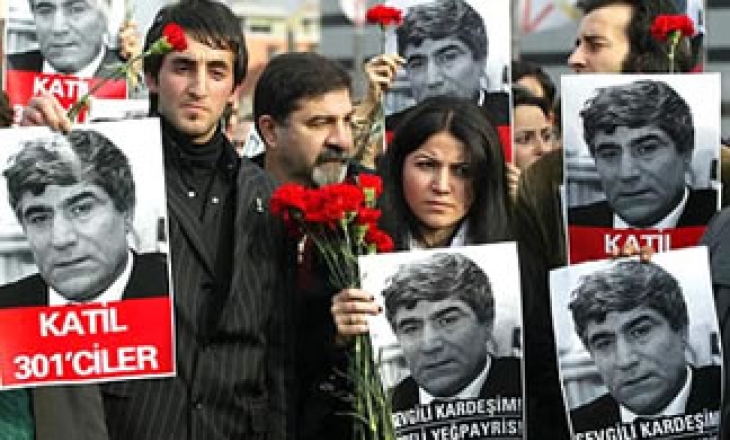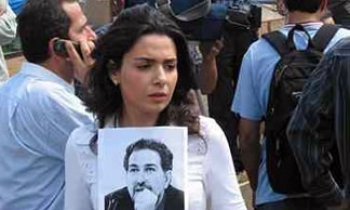The ruling Justice and Development Party (AKP) in Turkey has introduced a bill to soften a controversial article in the country's penal code outlawing criticism of Turkish identity. The proposal, the Southeast European Times website reported, contains amendments to the controversial Article 301, which decrees jail sentences of three years or less for insulting "Turkishness".
Prosecutors have used it to indict scores of prominent Turkish intellectuals, including Orhan Pamuk, the 2006 Nobel Literature Prize winner; Elif Safak, a prominent female writer; and Hrant Dink, the ethnic Armenian editor-in-chief of a Turkish-Armenian newspaper, Agos. Convicted of "insulting Turkishness", he was killed in January 2007 by a Turk who cited that charge as his motive.
Although most Article 301 trials have ended without a conviction, the European Union (EU) and international rights groups have long urged Turkey to amend the law or scrap it altogether.
The proposal was submitted to parliament ahead of visits by European Commission President Jose Manuel Barroso and EU Enlargement Commissioner Olli Rehn later this week. It would require approval of any Article 301 prosecution by the president, rather than by the justice minister or an expert committee, as earlier envisioned. Currently, such cases can be filed directly with the courts.
"The predominant inclination among the AKP is that [the] president's permission should be sought," government spokesman Cemil Cicek told reporters. The bill would also replace the elusive notion of "denigrating Turkishness" with "denigrating the Turkish nation". The maximum sentence would shrink to two years, potentially freeing those currently jailed under this charge. In Turkey, jail sentences not exceeding two years can be suspended until the offender commits the same crime again.
Some other details come from EurActiv.com:
The spokesperson of Enlargement Commissioner Olli Rehn, Krisztina Nagy, said that the Commission was monitoring the developments closely. "If these amendments succeed in better protecting freedom of expression, they will be welcome," she said.
The EU has repeatedly called on the government of Prime Minister Tayyip Erdogan to amend or scrap the article if Turkey is to prove it is serious in its bid to join the Union. But although the governing AKP party has pledged to reform Article 301 many times in recent years, its has thus far never followed up with concrete action.
The announcement could, however, be seen as part of a broader government initiative to reaffirm its EU commitment, including a comprehensive strategy to tackle corruption and harmonise regulations on unions and strikes.
"Article 301 of the Turkish penal code is one of the priority areas that needs to be addressed," an official from the Turkish Secretariat General for EU affairs told the Turkish Daily News.
"But it is not the only one," she added, calling for six other regulations which restrict the freedom of speech to be modified. She also urged the Turkish Parliament to agree to the changes "as soon as possible".
The opposition far-right Nationalist Movement Party (MHP) said it will oppose any changes related to Article 301. But the AKP's clear majority in Parliament would allow it to pass the bill without additional votes from the opposition.










